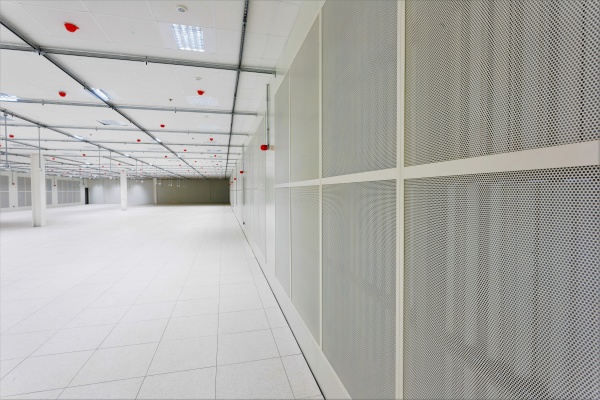Darren Watkins, managing director at Virtus Data Centres delves into the detail when it comes to corona continuity.
Today, nearly a quarter of the world’s population is in lockdown, as governments and health systems across the world attempt to stem the transmission of Covid-19.
This has prompted an exponential rise in data consumption, as people work from home, video call their colleagues, friends and family, and stream content across various media platforms like Netflix.
The coronavirus pandemic is fast confirming digital’s position as an essential service, on par with utilities like water and electricity – required for us to live and work safely and effectively.
But this puts added pressure on the infrastructures of organisations responsible for making our digital applications run, as the degree of reliance on network capacity and resiliency rises. At the heart of making all of this work is the data centre industry.
So how can this crucial industry cope with the pressure? And how do the businesses which rely on data centre services make sure that their providers are able to deliver through this time of crisis?
The challenge to the industry
It’s clear that, like everyone, the data centre industry is facing pressing challenges right now – from coping with increased demand and a diminished workforce, to the impact of the virus on global supply chains.
Fortunately, preparedness has always been a watchword of the industry; thanks to its focus on performance, efficiency, reliability and scalability – which has been tested time and again through experience with power blackouts, adverse weather conditions and other disruptive events.
Many companies are implementing and adapting business continuity plans in order to deal with the new threat. From stress testing VPNs to ensuring they can cope with increased traffic spikes, to meeting staffing needs, to communicating effectively with staff and customers, the industry is responding well to the challenge that Covid-19 poses.
During a virus pandemic, at the top of all data centre providers’ minds is of course, sanitisation. Critical facilities present challenges, because of access and security, and the need for specialised procedures.
However, intensified housekeeping measures, together with remote working (where possible) and options like secure non-touch entry when access is required, are helping data centre providers keep their staff and facilities protected.
As governments warn us that it’s unlikely that this situation will end anytime soon, we’re seeing providers ensure these new measures can hold up for the long-term.
Choosing the right partner
This increased reliance on critical digital infrastructure means that companies who get their data centre strategy right will benefit from an intelligent and scalable asset that helps them to keep the show on the road – not just now, but in the long term. For this reason, businesses need to ensure that their data centre partner is delivering in a number of areas.
The first, arguably most important, area to look at is the data centre provider’s ability to deal with increased traffic.
Is the organisation taking all the necessary steps to prevent any downtime? Does it have connectivity to the right partners? And, is its disaster recovery procedure robust and able to keep you connected, no matter what?
Location is an issue which companies are perennially concerned with when it comes to choosing a data centre partner. Smart providers choose optimal locations combining low cost availability of ample space and power for hyper-efficient data centres, with low cost availability of broad and rich connectivity – helping them to guarantee performance and reliability, even during these unprecedented times.
Security is also a hot topic, as malicious actors take advantage of fear around the Coronavirus crisis, bombarding companies with topical scams designed to steal data. But it’s not just cybersecurity that’s important – it’s crucial that a data centre provider can guarantee that they’ll keep you protected.
Physical security – keeping the criminals from physically accessing servers and networks – is also essential. Any data centre should be designed, built and maintained to withstand everything from a virus, to corporate espionage, to terrorists, to natural disasters, to thieves trying to make a fast buck.
The data centre industry is working hard to overcome pressing challenges and keep the economy running as well as it can. For the businesses that use their services it’s perhaps more crucial than ever to pick a partner who can truly deliver. For both parties, there is a shared long-term priority – in having the ability to plan for an uncertain future.
Flexibility is key, both for data centre providers who are choosing their build locations and suppliers that will allow them to expand quickly to meet demand, and for businesses who will need a plan for the post-pandemic future.
After the pandemic is over, and business recovers, organisations across the world will need the flexibility to scale and grow. To meet this need, businesses should look for flexible contract options which provide true commercial and technical agility, so that they are not just covered right now – but prepared for future needs.

